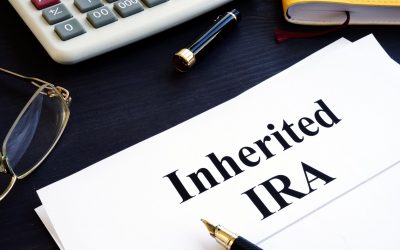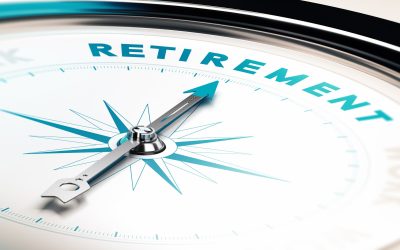
When you think of retirement, you might think of the vacations you’ll go on and all the free time you’ll enjoy with friends and family. There’s so much to enjoy about retirement, but it also comes with its challenges. Some of the biggest concerns you could face in retirement could be market volatility, an increased tax burden, and not having enough retirement income. Ultimately, all of these likely come from a fear of running out of money in retirement, which remains a top financial concern among retirees.[1] However, you can create a financial plan to address these concerns.
Market Volatility
Do you know what caused the Dow to fall 6% and lose $14 billion in value in a single day in 1955? It was President Eisenhower’s heart attack.[2] Similarly, we saw the market go on a rollercoaster ride after President Trump tested positive for COVID-19. Events like this – and the pandemic itself – are totally out of your control but could have a major impact on your finances. What is in your control is how you respond and work to protect what you’ve earned. Avoiding hasty decisions based on emotion and maintaining a diversified portfolio are crucial in retirement. It’s also important to assess your risk tolerance, which can decrease as you get older since you have less time to wait for the market to recover.
An Increased Tax Burden
A change in leadership in Washington and a growing national debt could mean higher taxes in the future. Starting at age 72, IRAs, 401(k)s, 403(b), 457, and Thrift Savings plans are subject to Required Minimum Distributions (RMDs). The purpose is to draw down your account and tax the funds that have been growing tax-deferred for many years. RMDs are one reason why your tax burden could increase in retirement. There are many strategies available, including a Roth IRA conversion, in which you pay tax on contributions instead of distributions. Roth IRAs are also not subject to RMDs and can be used in addition to a traditional IRA or 401(k) to help minimize taxes.
Creating Retirement Income
Losing a regular paycheck can be difficult when you don’t have a pension to rely on or do have one and need to supplement it. While Social Security can provide reliable lifetime income, it’s only designed to replace about 40% of your pre-retirement income,[3] and may replace less depending on your lifestyle. We can help you decide on the best retirement income option for you, whether you have a pension and are unsure of your payout strategy, or you’re wondering how to turn your retirement account savings into lifetime income.
The most important step you can take to address these concerns is creating a comprehensive retirement plan. This plan should take your unique needs into account and respond to changes in your life or your finances if need be. We can help you assess your risk tolerance, pursue strategies to help minimize your tax burden, and create a retirement income plan. Come have a conversation with us so that we can learn about your retirement planning needs and retirement goals.



